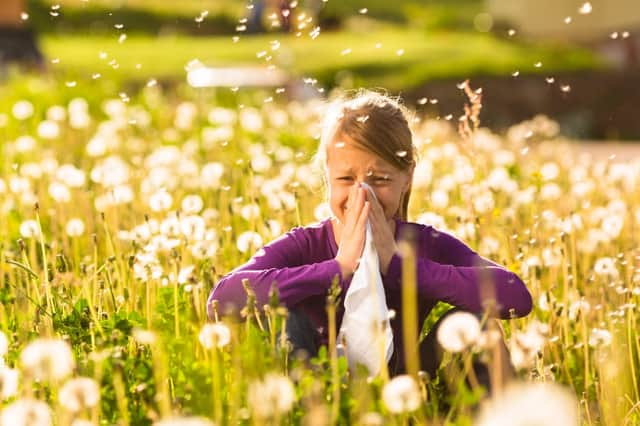Here's when hay fever season starts and how to tell allergy symptoms from coronavirus


With hay fever season set to start at the end of March, some people will be wondering whether a cough and runny nose are signs of an allergy to pollen or something more sinister.
And if you suffer from hay fever, are you more susceptible to coronavirus, since it’s been said to affect those with respiratory conditions?
Advertisement
Hide AdAdvertisement
Hide AdAs the virus continues to spread throughout the globe, the advice is to avoid your GP if you have symptoms - so here’s how to spot the difference between hay fever and coronavirus, and whether it puts you at risk.
What’s the difference between hay fever and coronavirus symptoms?
Allergy UK advises that hay fever, or allergic rhinitis, can feature “a runny nose, blocked nose, cough, and sneezing. In some people, hay fever can trigger allergic asthma, causing a tight chest and difficulty breathing.”
While a wide variety of symptoms have been reported in connection with coronavirus, the two most common ones are a high temperature and a new, continuous cough.
Hay fever does not cause a high temperature, and according to Allergy UK it doesn’t make people feel unwell.
Advertisement
Hide AdAdvertisement
Hide AdIt can usually be easily treated with medications such as antihistamines and nasal steroid spray, which you can buy at a pharmacy.
What causes hay fever?
Hay fever is an allergic reaction to pollen from trees, grass and weeds, which occurs at a certain time of year.
The higher the pollen count – the amount of pollen grains in a certain volume of air - the more severe the symptoms are likely to be.
In the UK, a count of 50 or below is considered low, while 1,000 or above is considered high.
Advertisement
Hide AdAdvertisement